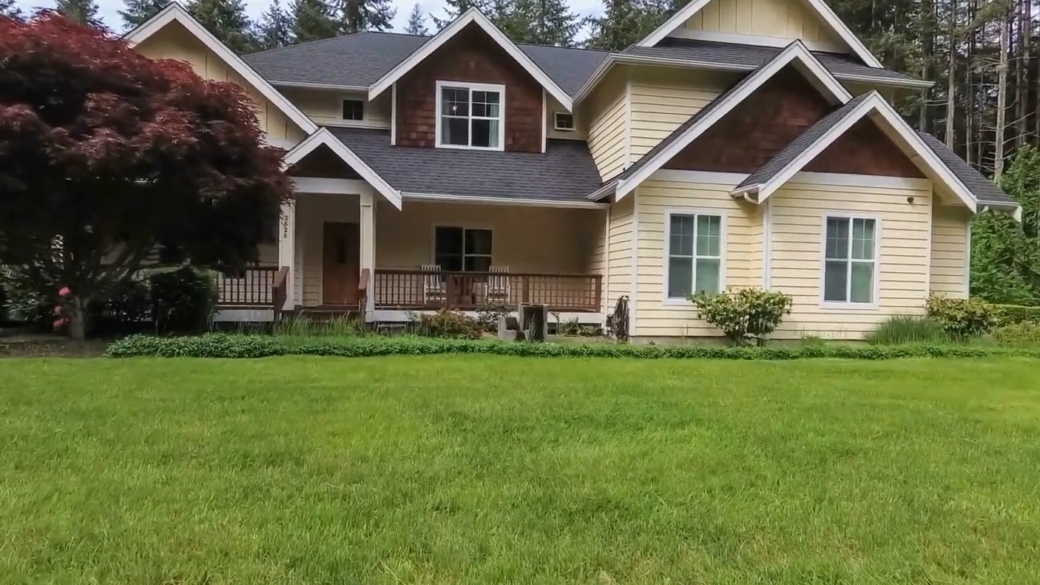Can You Turn Off Utilities on a Squatter?
For both homeowners and landlords alike, discussions around squatters taking over a property are an emotionally charged topic. While the term “squatter” may conjure images of unlawful trespassers, the legal landscape surrounding squatters is far more nuanced.
This article seeks to give a comprehensive review of the complexities involved in handling squatters – with an emphasis on the question: “Can you turn off utilities on a squatter?” It is especially pertinent for property owners who find themselves having to deal with unauthorized occupants.
We will also briefly discuss squatters’ rights and why it’s important not to let a squatter situation go uncontested, legal and illegal methods of eviction, and more.
When Does a Squatter Become a Squatter?
Squatter refers to the person who occupies land or property without any legal rights of dwelling there. Not all unauthorized occupiers are squatters under the law, however. For instance, a tenant who overstays his lease does not become a squatter automatically. The classification often depends on purpose, intent, and the period of time that an occupier stays on a property.
In most jurisdictions, one to be called a squatter should live in a property for some days or weeks without consent from the owner and without payment of rent. This period varies state to state but may range from few weeks to several years.
This situation hinges on the idea of “adverse possession.” Adverse possession allows a squatter to gain legal ownership over a property if he/she has occupied it openly and continuously for a certain period and the actual owner has not taken steps to eject them.
This therefore makes it paramount for the property owners to deal with issues surrounding squatters as soon as possible, legally, so that ignoring the situation does not lead to further complications down the line regarding legalities.
What Are the Rights of a Squatter?
A common misconception is that squatters have no legal rights. While the details vary by location, a person labeled as such by the law has a right to due process before being removed from the property. Thus, a landowner must serve an eviction notice and/or obtain a court order before evicting a squatter.
Adverse possession gives the property to an ‘occupier’ in some states if he or she meets certain conditions, including occupying the property openly and continuously for several years. Squatters might even have the right to utilities such as water and electricity, which brings us to our main point of this article: can you turn off utilities on a squatter?
Local and State Laws on Squatting
Squatting and adverse possession are two terms that have wide variances in the laws regarding them from one jurisdiction to another. For example, there may be jurisdictions with a period as short as five years for a squatter to claim adverse possession, while others may require 20 years.
Some jurisdictions may even require that the squatter make improvements to the property or at least pay property taxes. All these variations have rendered it important for property owners to consult local laws and legal professionals to understand which particular regulations apply to their situation.
Can You Turn Off Utilities on a Squatter Legally?
So can you turn off utilities in a squatter? The short answer is no. You cannot legally turn utilities off to a squatter without going through legal channels. It would be what is called “constructive eviction” in many jurisdictions and it would also be illegal activity as well.
Constructive eviction occurs when actions taken by the property owner make the property uninhabitable for the occupant forcing that occupant out of the place. It could include turning off essential utilities such as water, electricity, or heat.
The appropriate response when a squatter situation arises is to always seek advice from an attorney about your rights and duties. Cutting off the utilities may seem like the easiest remedy, but it initiates legal ramifications that will only add fuel to the fire in terms of eviction later on.
Property owners should instead look toward complying with proper procedures for eviction as set out by law, generally involving service of notices and court orders.
5 Reasons Why You Shouldn’t Let a Squatter Be Uncontested in Your Property
- Loss of Property Control: Letting a squatter stay on your property without any contest means that you lose control over your property. It can get you into many problematic situations, from damage to the property to several legal complications.
- Financial Strain: Squatters do not pay rent. They utilize utilities, and they occupy space that could otherwise be rented to a paying tenant. This can result in substantial financial losses over time.
- Legal Complications: As mentioned, squatters can acquire legal rights to a property via adverse possession if they are allowed to stay for a long time. This makes eliminating them harder, slower, and more expensive.
- Safety Concerns: An uncontested squatter may be a threat to the property as well as the neighborhood. There is no certainty that a squatter will care for or follow the community’s rules.
- Reputation Damage: Having a squatter on your property can damage your reputation as a property owner, making it difficult to attract good tenants later on.
5 Ways to Evict Your Squatter
- Consult a Legal Professional: Typically, the first step in most eviction processes is to consult a legal professional who can explain both your rights and responsibilities.
- Serve an Eviction Notice: This is often the first proper legal step actually taken to expel a squatter. It should be served according to local laws.
- File an Unlawful Detainer Lawsuit: If these notices are not heeded, the next step is generally filing an unlawful detainer lawsuit.
- Obtain a Court Order: A court order must then be obtained for the removal of the squatter, which tends to be the final step in the legal process of eviction.
- Use Law Enforcement: When this court order has been received, law enforcement officers will usually enlist them to remove them from the property.
The Role of Law Enforcement
Law enforcement agencies play a crucial role in the eviction process. However, they cannot remove those squatting unless a court order says so. Depending on what rule of law applies, property owners shouldn’t expect immediate action from the police because efforts should first be made to obtain the necessary legal permissions for eviction.
3 Ways That Are Illegal to Remove Squatters
- Physical Removal: To physically remove a squatter without a court order would be illegal and could result in charges of criminal charges.
- Harassment or Intimidation: There are laws against harassing or intimidating people to force them from their property. This also is illegal.
- Constructive Eviction: As mentioned earlier, turning off utilities so as to make the property uninhabitable constitutes constructive eviction. It remains illegal in many jurisdictions.
Impact on Property Value
A squatter on a piece of property can greatly reduce its value. The possibility of damage to property is high and the mere presence of a squatter alone will lower your property’s desirability to future tenants or buyers. Legal barriers to having a squatter legally evicted are also a red flag to potential investors, driving down the market value even further.
Therefore, it is always wise for any property owner to resolve squatter situations quickly and legally to protect their investment.
The Psychological Toll on Property Owners
One of the most overlooked aspects of this issue is how it affects you emotionally and mentally when you have a squatter on your property. The owners tend to go through different emotions such as anger, frustration, anxiety, and fear.
The sense of violation that comes with someone unlawfully occupying your property within your possession can be disturbingly unsettling.
In addition, the stress of exploring avenues to reclaim control over your property in court tends to take its toll on one’s mental state. This emotional burden also strains relationships within families, as such issues remain a constant point of concern and discussion within different circles.
For these reasons, seeking emotional support from friends, family members, or even mental health professionals while dealing with such a challenging situation remains paramount.
The Cost of Legal Proceedings
The emotional strain of evicting a squatter is not the only thing that can make this process financially difficult. Legal fees can add up quickly, from consultation costs with a legal professional to court costs for filing an unlawful detainer lawsuit.
There might be costs involved with serving the legal notices as well, and maybe law enforcement officers will have to physically remove the squatter. All of these expenses can run into the thousands, adding financial stress to an already difficult situation. Property owners should prepare for these expenses and talk with legal professionals about what they might expect in order to budget accordingly.
How to Prevent Squatting?
Preventative measures are typically the most effective. Property owners can do a multitude of things to make their property less appealing as an option for squatting. This might include installing security systems, conducting regular inspections, and keeping the property well-maintained in order to show that it is actively managed rather than abandoned.
Neighborhood awareness could also help; knowing proper neighborhood etiquette will allow neighbors who witness odd behavior at vacant houses to buzz the rightful owner to add another layer of protection.
So Can You Turn Off Utilities On A Squatter?
Dealing with squatters is a sensitive issue that needs to be maneuvered carefully through the legal landscape. Things becoming personal by just shutting off utilities or taking forcible actions are often illegal and can only make the situation worse.
A property owner should seek advice from professional lawyers and go through the process of eviction legally so that they can protect their property rights. Ignoring a squatter situation or letting it persist unchecked leads to immense financial, legal, and reputational risks; thus, dealing with the matter swiftly and legally is needed to take control over your property.
To find out squatters rights in Missouri, take a look at this article.


